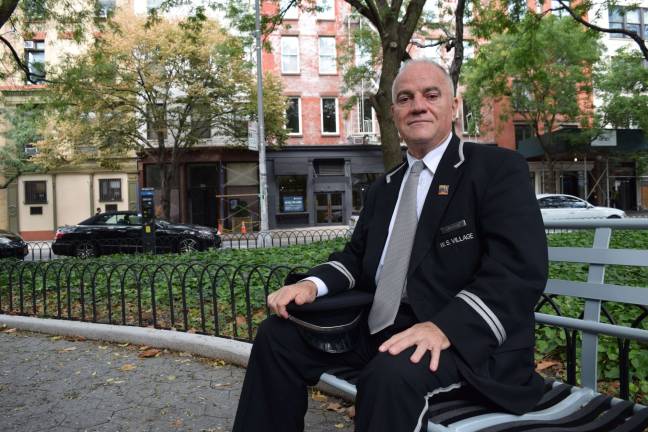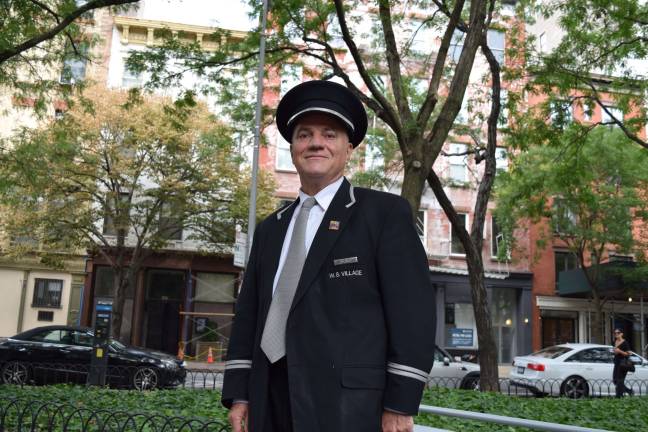He’s ‘part of the family’


At Washington Square Village on Thanksgiving Day, Duilio Bini can sometimes wind up with six or seven dinners. They’re delivered by the residents he serves.
“I learned from father to never say no, so I take all the dinners,” he says. “Even if it’s turkey, every culture has a small difference. Spanish will have pork and tamales, for instance, but I’ll get Irish-American and French twists.”
The same sort of thing happens the next month, too.
“They’ll also take care of me at Christmas,” he insists. “I become part of the family. I spend most of my waking time with them. Coming to work is like a therapy. I feel happy.”
Bini, 64, is a man with many interests. He reports that he reads three to four hours a day. He’s passionately interested in politics and history, as he is by natural history and natural medicine.
Bini, a married father of five, grew up in Ecuador, and came to the U.S. at 18 to make it on his own. His first employment was at Radio City Music Hall. He’s now worked for nine years at Washington Square Village, part of a 46-year professional career in this country.
What inspires Bini, he says, is injustice and it keeps him busy and in the forefront of worker’s rights movements. He says he once read in a scientific journal that the brains of people who protest and those who “go along with the system” are wired differently. It may be genetic, he says.
If this is true, by his lineage, protest surely runs in his blood. His grandfather was born in Napoli, Italy, and was killed by Mussolini for being a socialist. Bini says his own father, in turn, was beat up and left for dead in the streets by the Mussolini Black Shirts. Bini’s grandmother found him, nurtured him back to health and put him on a ship to become an officer for the merchant marines.
Bini described himself as proud to be an American, although he doesn’t neglect his country of birth. He describes how he’s been able to have hundreds of thousands of dollars’ worth of perfectly new medical equipment, which might otherwise have been thrown away, utilized by public hospitals in his country. He says his passion for politics is fed by favorite media figures, including Noam Chomsky, Richard Wolfe and Amy Goodman.
He says he has a great job. “I’m blessed,” he says. “The reward is my tenants who make my day. They greet me every morning, every afternoon, and evening.”
He loves seeing the children, enjoying the happy moments, especially when his tenants become parents. “I’m often the first one they show the baby to,” he says.
But he doesn’t shy away from the darker side of life either. “I share the sorrow when somebody passes away,” he says. He sees sickness and old age up close. “We share in that and feel the pain.”
He talked about the range of residents’ lives, and how he speaks with single women who live alone or someone who has never had children. “They start talking to us,” he says. “We are social workers. We are psychologists. We are bartenders. All those jobs, because we have to be good listeners.”